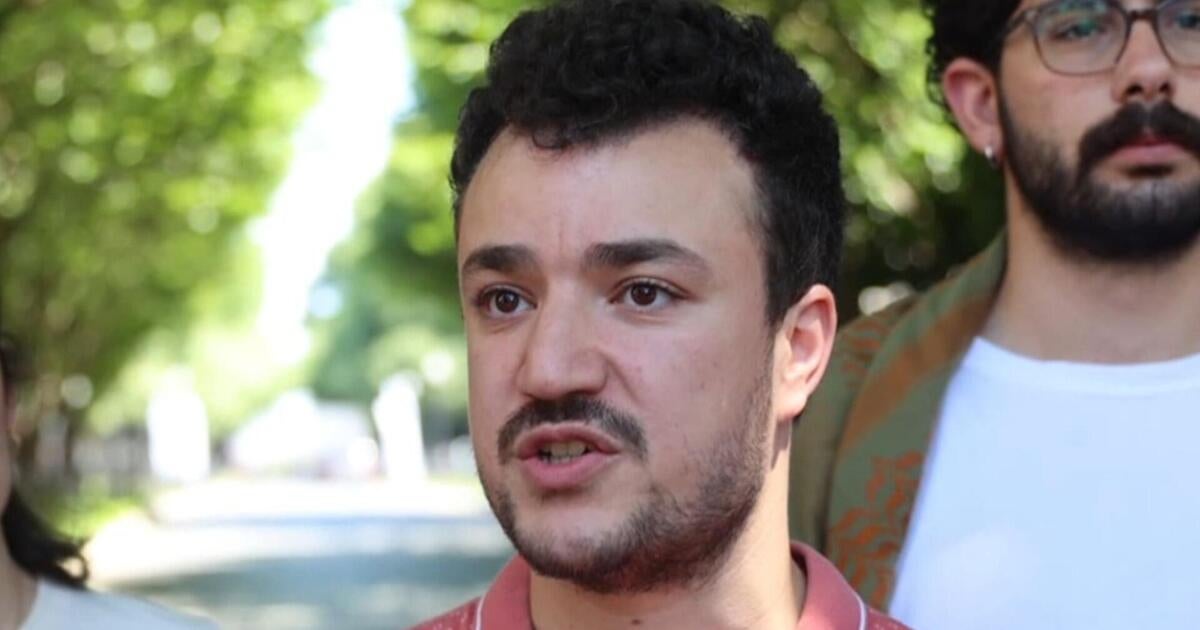On Wednesday, a legal battle is expected to commence between the attorneys representing activist Mahmoud Khalil, a leader of pro-Palestinian protests at Columbia University, and federal officials seeking his deportation. The ongoing dispute marks another chapter in the increasingly heated dialogue surrounding immigration, free speech, and national security in the United States.
A federal judge on Monday temporarily halted Khalil’s removal, barring the government from deporting him before Wednesday’s hearing in New York. The decision arrived in response to Khalil’s arrest on Saturday night by federal immigration authorities at his university-owned apartment. The arrest occurred under the auspices of a State Department order to revoke Khalil’s student visa and green card, according to Amy Greer, Khalil’s attorney. Following his arrest, Khalil was transferred to a detention center in Jena, Louisiana. Due to his detainment, Khalil will be unable to attend the New York hearing.
The story of Mahmoud Khalil is one of academic achievement, activism, and controversy. Aged 30, Khalil graduated in December with a master’s degree from Columbia University’s esteemed School of International and Public Affairs. He is also married to an American citizen, who is currently eight months pregnant.
The case has attracted high-profile attention, with President Trump addressing Khalil’s arrest on Monday, indicating it was just the beginning of a series of similar actions. The president’s statement seemed to suggest that Khalil’s arrest was part of a broader initiative by the White House to clamp down on students and alleged “agitators” protesting Israel’s war with Hamas.
White House spokesperson Karoline Leavitt spoke about the case on Tuesday, arguing that Khalil had been “given the privilege of coming to this country to study at one of our nation’s finest universities and colleges – and he took advantage of that opportunity, of that privilege by siding with terrorists.” Leavitt alleged that Khalil had distributed flyers on Columbia’s campus that were “pro-Hamas.”
“We have a zero-tolerance policy of siding with terrorists, period,” Leavitt stated firmly, indicating the administration’s stance on the issue. While Khalil has been accused of making statements in support of Hamas, he has not been publicly accused of providing any material support. His lawyers argue he is being punished for exercising his constitutionally protected right to free speech.
In a statement released on Monday, Khalil’s attorneys argued that their client was being used as an example in an attempt to suppress lawful dissent, an action they believe violates the First Amendment rights of individuals to freely express their views.
The dispute over Khalil’s case also extends to the realm of immigration policy. Secretary of State Marco Rubio voiced his perspective on the issue Tuesday morning, arguing that the case was “not about free speech.” Instead, Rubio suggested that the crux of the matter involved individuals who “don’t have a right to be in the United States to begin with.”
“No one has a right to a student visa,” Rubio stated, adding, “No one has a right to a green card, by the way. So when you apply for a student visa or any visa to enter the United States, we have a right to deny you for virtually any reason, but I think being a supporter of Hamas and coming into our universities and turning them upside down, and being complicit and what are clearly crimes of vandalization, complicit in shutting down learning institutions.” Following Khalil’s arrest, Rubio took to social media to announce, “we will be revoking the visas and/or green cards of Hamas supporters in America so they can be deported.”
Khalil’s arrest came “in support of President Trump’s executive orders prohibiting antisemitism,” according to a statement from the Department of Homeland Security. However, the arrest has elicited criticism from some quarters, particularly among students and professors at Columbia University. This led to protests in Manhattan on Monday.
In response to the arrest and the subsequent suspension of $400 million in federal funds due to alleged antisemitism on campus, the school’s interim president, Katrina Armstrong, addressed the Columbia University community on Monday. She referred to the ongoing situation as “a challenging moment for our community.”
“All eyes are on Columbia at present. It falls to us to ensure our University, and indeed the values of higher education more broadly, survive and thrive,” Armstrong wrote, highlighting the gravity of the situation and its potential implications for higher education in America.
The case of Mahmoud Khalil unfolds at the crossroads of several major issues confronting American society today: the scope of free speech, the bounds of academic freedom, the complexities of immigration policy, and the tension between national security and individual rights. As such, the outcome of this case could have far-reaching implications and is being closely watched by many, including those within the realms of academia, law, politics, and civil society.









